Search
Search Results

Definition
Aethelwulf of Wessex
Aethelwulf (r. 839-858 CE) was King of Wessex, a region in modern-day Britain, son and successor to Egbert of Wessex (r. 802-839 CE) who had unified and expanded his kingdom with Aethelwulf's assistance. Aethelwulf fought at the Battle of...
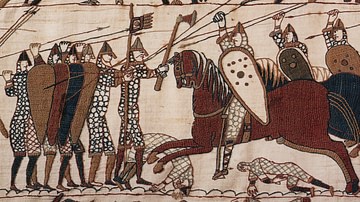
Definition
Anglo-Saxon Warfare
Anglo-Saxon warfare was characterised by frequent and violent conflicts between petty kings, which ultimately led to the rise of larger kingdoms such as the Kingdom of Mercia, the Kingdom of Northumbria, and the Kingdom of Wessex. In early...
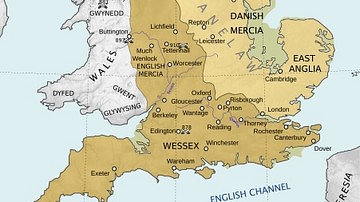
Definition
Kingdom of Wessex
The Kingdom of Wessex (c. 519-927 CE or c. 519-1066 CE) was a political entity founded by the West Saxon Chieftain Cerdic (r. 519-540 CE) in 519 CE in the Upper Thames Valley of modern-day Britain which would later evolve into the modern...

Image
England Around 910 CE
Map showing England around 910 CE, showing among others the Viking territories under the Danelaw as well as the English kingdoms of Mercia (at this point in time ruled by Aethelred, Lord of the Mercians (r. 881-911 CE) and Wessex.

Article
Battle of Edington
The Battle of Edington, fought in May 878 in southwest England, saw Alfred the Great, King of Wessex (r. 871-899), win a decisive victory over the Viking leader Guthrum (d. 890). Two weeks later, under the terms of the Treaty of Wedmore...
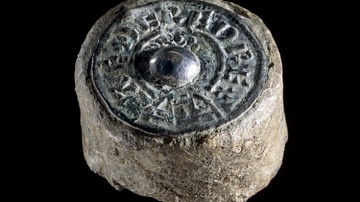
Image
Viking Weight
Viking weight comprised of lead and topped with a penny of Aethelred I (r. 865-871 CE). Acquired in 1991 near Wareham (Dorset). (British Museum, London)

Image
St Oswald's Priory, Gloucester
The remains of the medieval priory of St Oswald near Glouster (Gloucestershire, Great Britain). The church was originally built c. 900 CE by Aethelflaed, Lady of the Mercians (r. 911-918 CE), and her husband Aethelred.
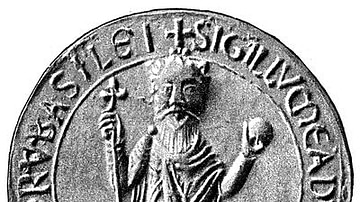
Definition
Edward the Confessor
Edward the Confessor, also known as Saint Edward the Confessor, reigned as king of England from 1042 to 1066 CE. Edward was reliant on the powerful Godwine (aka Godwin) family to keep his kingdom together but his achievements included a relatively...
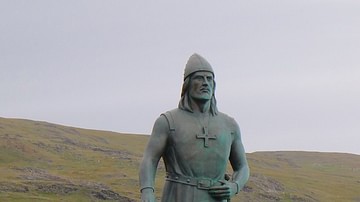
Article
Twelve Great Viking Leaders
The Viking Age (c. 790-1100 CE) transformed every aspect of the cultures the Norse came in contact with. The Vikings usually struck without warning and, in the early years, left with their plunder and slaves to be sold as quickly as they...

Article
Twelve Famous Women of the Middle Ages
Women in the Middle Ages were frequently characterized as second-class citizens by the Church and the patriarchal aristocracy. Women's status was somewhat elevated in the High and Late Middle Ages by the cult of the Virgin Mary and courtly...